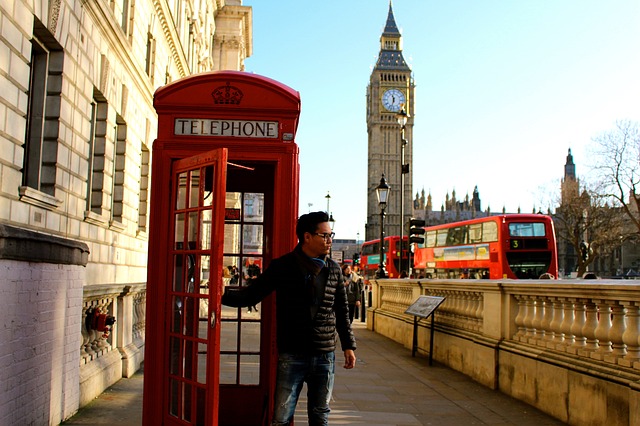
London is becoming a popular place to live for the citizens of China. Only in 2012, 40,000 people moved from China to the capital of UK, according to the data published by the Telegraph.
Nowadays, about 125,000 ethnic Chinese are permanent residents of London. London also has its Chinatown and it’s situated in the City of Westminster – one of the central London boroughs. Many Chinese institutions are located in the vicinity of London Chinatown, as well.
Since so many Chinese people are coming to London, it’s important to provide them with some basic information that will help them understand the city and its culture. You can learn more about these aspects of life in London in the next few paragraphs.
1. The key Chinese institutions
Whenever you’re traveling to a foreign country, one of the first things you should check is the location of your national embassy. As for the Embassy of People’s Republic of China in London, it’s situated in 31 Portland Place, London, W1B 1QD, which is part of Marylebone, an area in the City of Westminster. It’s also not far away from the London Chinatown.
Further, the Chinese who are planning to live in London for a longer period of time should get familiar with the work of the London department of the Ming-Ai Institute. This cultural institution was founded in 1993. Since then, it has been enhancing the integration of Chinese people into the domestic London community.
While Chinese newcomers to London can seek advice and assistance from the staff of this institute, their employees also organize workshops for British people, to improve their understanding of the Chinese and their culture.
Also, you can contact the London Chinese Community Center. This institution provides both Chinese and British people with all the necessary information that will enhance their mutual understanding and integration. Their polite and well-trained staff can help you in many different aspects, from legal advice and welfare to multicultural activities and language classes.
2. Educational materials in the Chinese language
Although new generations of students can easily store books on their gadgets, students still might need access to hard copy educational materials.
The first choice for that purpose if the Westminster Chinese Library, also known as the Charing Cross Library. This library exhibits one of the most amazing collection of books in Chinese in the UK. Here you can borrow more than 50,000 books in Chinese, which is a valuable source for every class of Chinese residents of London.

Also, this place often organizes different events that promote and explain Chinese culture and its customs. These occasions can help the new London residents of Chinese origins to mingle with their fellow Chinese compatriots who have been in London for a while.
3. Learning the most important customs
Sometimes people think that you’re ready to start visiting a foreign country when you’ve mastered the language spoken in that very country. While the language is important, it’s not the only communication norm you should get familiar with.
Visiting a foreign country also includes learning more about the customs practiced by the people living there. In other words, every Chinese person should learn some good manners before of when they arrive in London.

For instance, British keep a distance on many social occasions. They don’t use too many hugging and kissing in such situations. In most cases, a firm handshake is a perfect greeting. However, when you make some good friends, it’s not unusual to kiss a close friend or a family member.
Also, it’s not recommended to pay a visit to a British friend or acquaintance without informing the host about your visit. Still, British people are warm and friendly hosts when they invite you to be their guest.
When visiting, you should bring a gift. Giving your host a box of fine chocolate and a glass of classy wine as a present is considered good manners.
Further, punctuality is appreciated in the British culture. Since the Chinese also don’t like being late, you won’t have to make any significant changes in this area.
4. To tip or not to tip?
Younger Chinese people, especially students, will often find themselves in various occasions where they won’t be sure whether or not they should leave a tip.
Since tipping isn’t too popular in China, it’s important to know the basics of tipping in London and the UK in general.
A rule of thumb is that you leave a tip to people who provide various services for you in restaurants, cafes and hotels. This tip can range from few coins of change to 10% or even 15% of the bill total. In some restaurants and cafes, the service fee is included in the bill. That fee covers the tip. Still, if the service or the meal/drink has been extraordinary, you can always leave a quid or two to the serving staff.

In hotels, on the other hand, it’s up to you whether or not you want to leave a tip. If you’re a student, it’s not highly likely that you’re going to stay in a hotel, but rather in a dorm. Anyway, if any of the staff members does anything special for you, you can always leave them a tip or buy them a small present to show respect for their effort.
Knowing where you can find the major Chinese institutions and the educational materials in Chinese will be useful for every new Chinese who has moved to London. It will help you socialize in London and improve your knowledge of this city and the local cultural norms. As for the norms and customs, getting familiar with them will ensure faster integration in the local community. Finally, learning when to tip will help you feel more comfortable in social situations and in public places. When you put all these elements together, you’ll be able to lead the life of a genuine Londoner.
